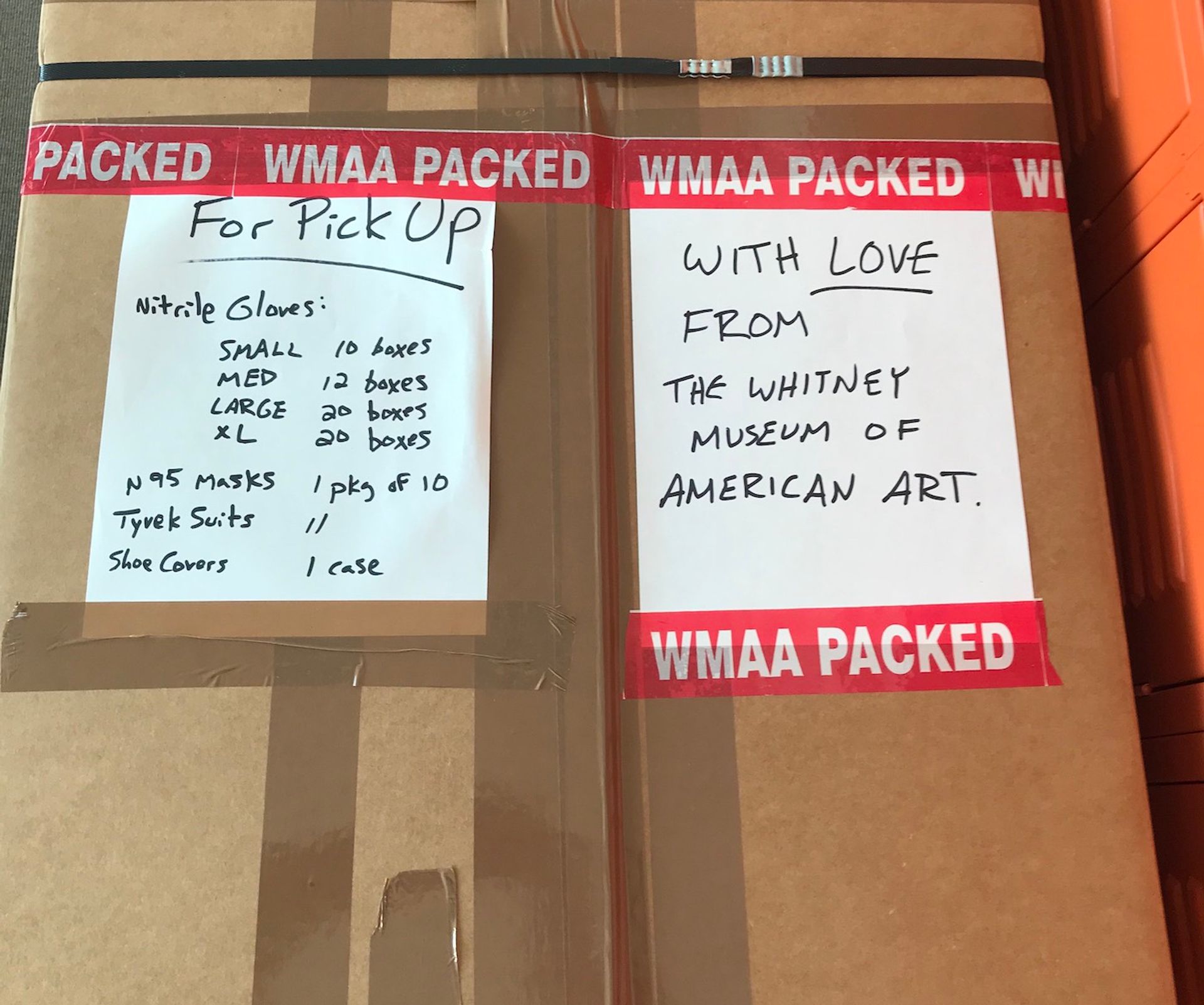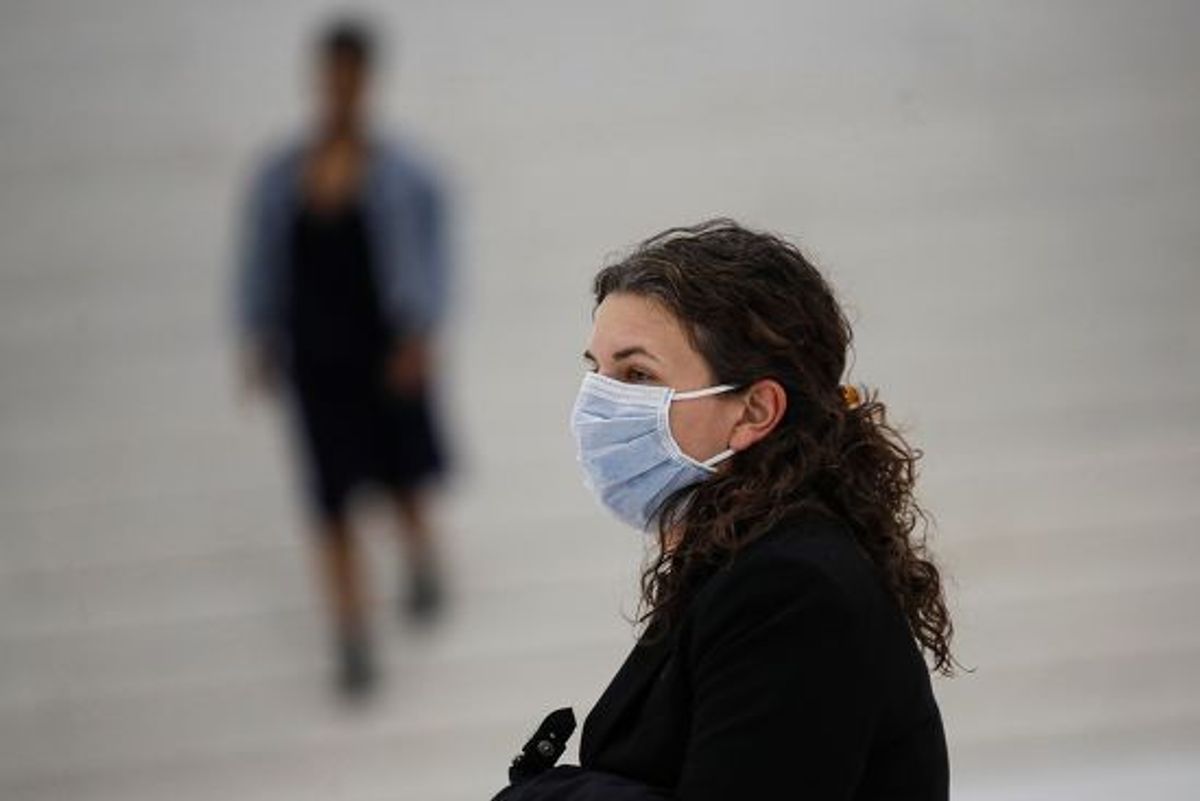As healthcare workers struggle to secure face masks and other protective equipment amid a global shortage of medical supplies due to the coronavirus (Covid-19) crisis, museums, artists and design studios are rallying to create and donate protective materials to healthcare workers. Despite severe shortages and unreasonable mark-ups on protective gear, however, some organisations and artists hoping to devise their own protective supplies are facing challenges, as their products do not clinical standards.
The Philadelphia-based design studio BDDW says it has the knowledge and equipment to sew protective face masks and garments but has not been able to secure the “mysterious" N95 filter fabric that is required to make the masks medical grade, according to its founder, Tyler Hays. The studio says it could provide between 2,000 and 3,000 masks to medical professionals in New York and Philadelphia in the first phase of the project, and that it has received an overwhelming response from individuals and medical professionals willing to help, but that their masks would not meet medical requirements.
The Fabric Workshop and Museum in Philadelphia is also working to create its own protective materials, and has been told that the usefulness of the materials it can produce “depends on a medical centre’s level of desperation”, says the executive director Christina Vassallo. She notes that while information changes everyday regarding the crisis, she has been in touch with a representative of a city-wide group of medical students dedicated to collecting and distributing useful materials to hospitals in New York and Philadelphia.
“We’re allowing full-time staff to dedicate up to eight hours a week to these efforts, and part-time staff up to three hours a week, to do this experimental collaborative project to use their artistic skills to help," Vassallo says. “If you work in a museum or in an arts organisation, chances are that you are working among vastly talented and creative people, and what better time to harness our creative energy to serve the public.”

The Whitney Museum of Art in New York is one of the institutions donating its supplies to medical centres Greg Reynolds
Today, around 200 US cities reported an urgent and dire need for face masks and other emergency equipment that is essential to combating the virus while. On Thursday, the US saw an increase of more than 15,000 Covid-19 cases in one day as the country overtook Italy and China as the country with the highest number of confirmed cases.
“We’ve been told that medical centres are willing to take anything at this point, although these masks would not be used under regular circumstances in a hospital,” Vassallo says. The museum is also consulting with experts on how it can use a 3-D printer to create appropriate protective medical supplies. Yet usefulness of fabric face masks, which it is working to produce with six members of its studio staff and other volunteers, remains in question.
Along with several other museums, the Fabric Workshop has also donated medical-grade gloves, booties, Tyvek suits and other protective materials that are typically used by conservators and art handlers to hospitals and medical centres.
Other US museums taking answering the call of duty include the Dallas Museum of Art, which has donated 10,000 nitrile gloves to a local medical centre. Additionally, the Whitney Museum of American Art has donated one case of shoe covers, 62 boxes of gloves and 11 Tyvek suits to medical centres in New York, according to the museum’s preparator, Greg Reynolds, who confirms that the Museum of Modern Art, the Metropolitan Museum of Art and the South South Street Seaport Museum have also donated their supplies.
“We devised a plan for one of us who was able to ride to the museums to pack-up all our available supplies on hand, both in the museums itself and our storage facilities,” Reynolds says. “Once Scott Rothkopf and Jerry Saltz shared the picture of our contribution awaiting pick-up [on social media], attention in the art world grew rapidly.”
The museums' donations are part of a global trend that started last week when the art historian Erma Hermens of the Rijksmuseum in Amsterdam announced via Twitter that the museum would donate their face masks and gloves to local hospitals. Her call to action inspired the Stedelijk Museum, the Van Gogh Museum, the Het Nieuwe Instituut in Rotterdam, the British Museum in London and other institutions in the UK and Europe to follow suit.
“Despite challenges facing the sector, museums are well-placed to respond to some of the urgent needs in our communities and provide practical support,” the Museums Association in the UK writes in a bulletin published on 26 March that highlights ways museums can support the public health system during the coronavirus pandemic.


